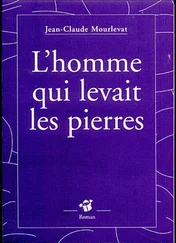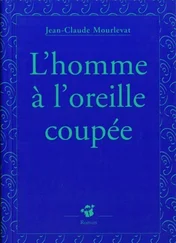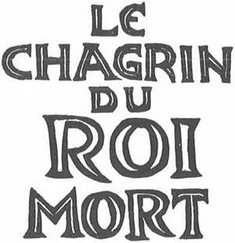Jean-Claude Mourlevat - Winter's End
Здесь есть возможность читать онлайн «Jean-Claude Mourlevat - Winter's End» весь текст электронной книги совершенно бесплатно (целиком полную версию без сокращений). В некоторых случаях можно слушать аудио, скачать через торрент в формате fb2 и присутствует краткое содержание. Год выпуска: 2010, ISBN: 2010, Издательство: Candlewick, Жанр: Старинная литература, на английском языке. Описание произведения, (предисловие) а так же отзывы посетителей доступны на портале библиотеки ЛибКат.
- Название:Winter's End
- Автор:
- Издательство:Candlewick
- Жанр:
- Год:2010
- ISBN:9780763651749
- Рейтинг книги:5 / 5. Голосов: 1
-
Избранное:Добавить в избранное
- Отзывы:
-
Ваша оценка:
- 100
- 1
- 2
- 3
- 4
- 5
Winter's End: краткое содержание, описание и аннотация
Предлагаем к чтению аннотацию, описание, краткое содержание или предисловие (зависит от того, что написал сам автор книги «Winter's End»). Если вы не нашли необходимую информацию о книге — напишите в комментариях, мы постараемся отыскать её.
Winter's End — читать онлайн бесплатно полную книгу (весь текст) целиком
Ниже представлен текст книги, разбитый по страницам. Система сохранения места последней прочитанной страницы, позволяет с удобством читать онлайн бесплатно книгу «Winter's End», без необходимости каждый раз заново искать на чём Вы остановились. Поставьте закладку, и сможете в любой момент перейти на страницу, на которой закончили чтение.
Интервал:
Закладка:
“Blow the wind southerly, southerly, southerly,
Blow the wind south o’er the bonny blue sea. . . .”
The other three girls were astonished. They hadn’t known that anyone could play with her voice like that, modulating it, making it vibrate, lingering on a note that swelled and then faded.
“But sweeter and dearer by far ’tis when bringing
The barque of my true love in safety to me.”
In the stupefied silence that followed the last notes, all Doris could whisper was, “What was that?”
“A traditional folk song.”
“It was lovely,” said Doris.
“Thank you,” Milena said softly.
That was three years ago, and Milena hadn’t sung more than half a dozen times since. When she did sing, it was a rare and precious gift, given when she chose to whomever she chose — one evening in the dormitory at Christmastime, for a group of ten girls, for instance, or in a corner of the yard just for Helen on June 14, as a birthday present, or, last time, on a summer afternoon during a long walk beside the river. As soon as she opened her mouth, you felt a tingle down your spine. Her singing, even if they didn’t understand the words, somehow spoke straight to all the girls. It brought back old faces, and you could almost feel a hug you thought you’d forgotten. And above all, even if you were sad when you heard it, it gave you strength and courage. The rumors had spread very fast: Milena did indeed “sing well,” but she revealed none of her gift in Old Ma Crackpot’s music lessons and choir practice. Her voice was like anyone else’s then, ordinary, with no special charm. Old Ma Crackpot taught nothing but theory in music lessons, and she made the girls sing the three authorized songs until they were completely sick of them, particularly the dreadful school song:
“Happy of heart and pure of soul,
In unison we sing. . . .”
Now the two girls were in the middle of the bridge, at its highest point. Ahead of them in the distance was the hill where the consolers lived.
“Think we’ll meet any of the boys?” asked Helen.
“That really would surprise me!” Milena said with a laugh. “They don’t come here as often as we do; everyone knows that. And no one but Helen Dormann would think of visiting their consoler at this time of the evening in October!”
“We might meet some coming back down, all the same.”
“Dream on! They hide in the undergrowth when we come along! You’d have to shake the branches and shout, ‘Hey! Anyone there? ’ ”
Helen burst out laughing. She was relieved to see her friend back in a good mood.
“Do you think the consolers hug the boys too?”
“I’m sure they do!” said Milena. “But the boys wouldn’t admit it even under torture.”
They started down Donkey Road, which was steep and poorly lit. You could imagine families sitting over supper in yellow lamplight behind the narrow windows and drawn curtains. Another world. Sometimes you caught the sound of laughter or a raised voice. They passed the cobbler’s. He was just closing his shop for the night and gave them a vague nod without really looking at them. Boarding-school girls, that’s what they were to everyone, and people avoided speaking to them.
At the end of the road, they came to the countryside — no more houses except where the consolers lived, at the very top of the hill. They stopped for a moment to get their breath back and look at the town below on the far side of the river. Now they could see the glistening slate rooftops, the church towers, the roads shining in the light of the street lamps. A few cars were driving around, silent at this distance and looking like big, pot-bellied beetles.
“It’s lovely,” sighed Helen. “I would like the town if it wasn’t for —” She stopped, jerking her head at the huge building they had just left: the girls’ boarding school on the other side of the bridge.
“And if we could go there now and then.” Milena finished her sentence, pointing to the other building: the boys’ boarding school a couple of hundred yards from the girls’ school.
They had just set out again along the trodden earth road when a couple of figures came around a bend higher up. The two boys were striding downhill fast. They disappeared from view for a moment and then came into sight again, closer now, where the road began to run straight. The first boy was tall and thin. Helen noticed the way he looked straight ahead in a challenging way, his firm chin jutting out. The second, who was rounder in the face and shorter, followed close behind him. She saw the curly hair under his cap and his laughing eyes.
“Hi!” said all four of them at almost the same time, and they stopped face-to-face in the road.
“You’re going up?” asked the boy with the cap, rather stupidly.
“Looks like it, doesn’t it?” said Helen. Then she was annoyed with herself for sounding sarcastic, and to apologize added, “And you’re going down again.”
“That’s right,” said the boy.
“Who was whose companion?” Helen ventured. “If it’s OK to ask?”
The boy said nothing for a couple of seconds, looking undecided, and finally made up his mind and pointed to his taller friend. “He’s my companion.”
Helen got the impression that he was blushing as he made this confession. She liked that. Not wanting to embarrass him, she pointed to Milena and said, “And she’s mine.” Which meant, I’m going to see my consoler too — it’s nothing to be ashamed of.
The boy was obviously grateful. He smiled and said, “What are your names?”
“I’m Helen,” said Helen, “and this is Milena.”
“I’m Milos,” said the boy. “He’s Bartolomeo. We’re in the fourth year. What about you — which year are you in?”
“We’re both in the fourth year too,” said Helen.
The little coincidence amused them. Then they didn’t know what to say next, so they said nothing, feeling rather awkward. The two boys couldn’t bring themselves to go on down the hill or the girls to go on up it. There were very few opportunities for the students in the two schools to meet like this; it would have been stupid to part so quickly. Helen noticed that Milena and Bartolomeo couldn’t take their eyes off each other and thought her friend seemed unafraid. Looking from one to the other, she wondered desperately what to say next. But it was Milena who spoke first.
“We could exchange messages through the Skunk, couldn’t we?”
Helen felt the blood rise to her face. She had always thought that messages delivered by the Skunk were only for the fifth- and sixth-year students. Milena’s suggestion seemed incredibly daring. It was as if she had suddenly crossed a forbidden frontier without warning.
The Skunk was a wizened little old man who hobbled across the school yard and back late in the morning on Fridays, laboriously hauling his handcart after him. It contained, first, a load of clean sheets and, on the way back, a pile of dirty sheets, which he was taking to the laundry in town. As the only person who could pass freely between both schools, he was someone of considerable importance: he could deliver messages and bring the replies back next week or the week after. All you had to do was leave your letter tucked in the laundry along with payment — a banknote in an envelope or, even better, a bottle of spirits if possible. The Skunk suffered from some kind of gastric disorder that gave him appallingly bad breath. A disgusting smell of rotten cabbage hit you ten feet away from him even if he’d hardly opened his mouth. The poor man tried to keep this misfortune at bay by drinking cheap rotgut that could be bought for him in the town.
“We’ve never tried it before,” said the taller boy, the one his friend had called Bartolomeo. “But the older guys say it works.”
Читать дальшеИнтервал:
Закладка:
Похожие книги на «Winter's End»
Представляем Вашему вниманию похожие книги на «Winter's End» списком для выбора. Мы отобрали схожую по названию и смыслу литературу в надежде предоставить читателям больше вариантов отыскать новые, интересные, ещё непрочитанные произведения.
Обсуждение, отзывы о книге «Winter's End» и просто собственные мнения читателей. Оставьте ваши комментарии, напишите, что Вы думаете о произведении, его смысле или главных героях. Укажите что конкретно понравилось, а что нет, и почему Вы так считаете.












